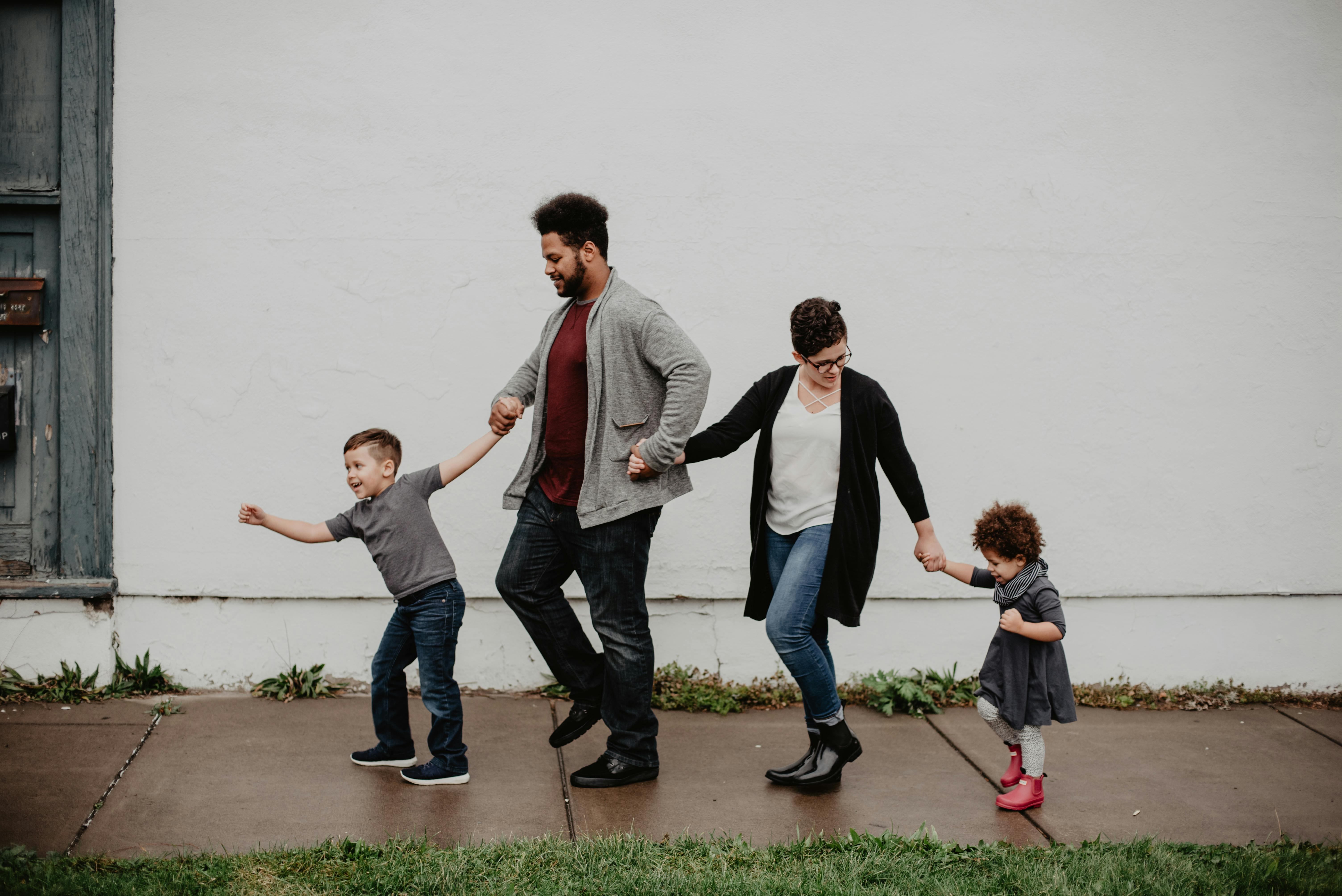
The Vital Role of Family in Mental Health Recovery
By Esther Olayinka Omoyele
On the International Day of Families, we are reminded of the profound influence our loved
ones have on our well-being. In the realm of mental health recovery, family support is not just a comfort—it’s a cornerstone for healing, resilience, and long-term recovery. As mental health awareness grows, understanding the multifaceted role of family can empower individuals and communities to create environments where recovery is not only possible but thriving.
A Foundation of Unwavering Support:
Family often provides the first line of emotional, practical, and informational support during
mental health challenges. From offering a listening ear in moments of crisis to helping navigate the maze of professional treatment options, families serve as the backbone of the recovery process.
This support can:
● Stabilise Emotions: Unconditional care and empathy from family members help reduce
feelings of isolation and shame, which are common barriers to recovery.
● Assist Practically: Whether it’s managing daily tasks, attending appointments, or
ensuring medication adherence, practical support alleviates stress and allows the
Individual to focus on healing.
● Educate and Empower: Families who engage in psychoeducation learn about mental
health conditions, treatment options, and early warning signs, equipping them with the
tools needed to advocate effectively for their loved ones.
The Power of Communication and Connection
Open, honest communication is key to transforming a family into a safe haven. Encouraging
family members to talk about mental health openly dismantles the stigma that often surrounds mental illness. This dialogue creates a culture of trust where every member feels valued and understood.
Engaging in family therapy or support groups can further enhance these connections. By
working through conflicts and misunderstandings in a guided, non-judgmental setting,
families learn to adapt their communication styles, set healthy boundaries, and build resilience together. In doing so, the entire family not only supports the individual in recovery but also grows stronger as a unit.
Building Resilience Through Collective Recovery
Recovery from mental health challenges is rarely a linear process. It often involves setbacks and requires ongoing effort, adaptation, and hope. Families play a critical role in nurturing Resilience by:
● Celebrating Small Victories: Recognising and applauding incremental progress builds
confidence and reinforces a positive outlook.
● Providing a Consistent Anchor: During turbulent times, the stability of family
relationships offers a sense of security that can buffer against relapse.
● Fostering Self-Compassion: When family members model self-care and acceptance,
they encourage those struggling with mental health to treat themselves with the same
kindness.
For many, the journey toward recovery is bolstered by the family’s belief in their ability to
overcome adversity. This faith instills a renewed sense of purpose and hope, critical
ingredients for long-term mental wellness.
Navigating Challenges and Nurturing Self-Care
While the benefits of family support are undeniable, the journey is not without its challenges. Families may sometimes struggle to balance their own emotional needs with those of a loved one facing mental health challenges. It is essential that family members also prioritize their well-being through self-care practices, seeking support when needed, and engaging in activities that nurture their mental health.
Encouraging each family member to acknowledge and address their own stressors can prevent burnout and ensure that the support provided remains sustainable over time. Professional guidance, whether through individual counseling or family therapy, can offer strategies to manage these challenges effectively and help maintain healthy dynamics within the family.
A Call to Action on the International Day of Families
As we celebrate the International Day of Families, there is a unique opportunity to reflect on and enhance the role of family in mental health recovery. Mental health organizations like We Hold a Hand is at the forefront of this mission, championing the cause of mental well-being through community-based support and education. Families are invited to:
● Engage in Open Dialogue: Start conversations about mental health at home. Ask how
everyone is feeling and share your own experiences to create a supportive environment.
● Educate Yourself: Learn about mental health conditions and treatment options.
Empowering yourself with knowledge aids in early intervention and dispels myths and
stigma.
● Seek Professional Guidance: Consider family therapy or support groups to work
through challenges collectively. Professional intervention can provide a safe space to
address conflicts and reinforce healthy communication.
● Prioritise Self-Care: Remember that the well-being of each family member matters.
Encourage practices that promote individual mental health to sustain the collective
strength of the family.
In Conclusion,
The journey of mental health recovery is a collective one. Family is more than just a support system, it is the nurturing environment that can transform challenges into stepping stones for growth. When families come together with compassion, open communication, and mutual respect, they not only support the individual in recovery but also pave the way for stronger, healthier communities.
On this International Day of Families, let us celebrate and invest in the strength of our family bonds. In doing so, we honor the essential role that family plays in fostering recovery, resilience, and hope—a legacy that benefits everyone, today and for generations to come.
Explore the vital role of family in mental health recovery. Discover how family support, open
communication, and self-care practices can foster resilience and healing for individuals facing mental health challenges.
On the International Day of Families, we are reminded of the profound influence our loved
ones have on our well-being. In the realm of mental health recovery, family support is not just a comfort—it’s a cornerstone for healing, resilience, and long-term recovery. As mental health awareness grows, understanding the multifaceted role of family can empower individuals and communities to create environments where recovery is not only possible but thriving.
A Foundation of Unwavering Support:
Family often provides the first line of emotional, practical, and informational support during
mental health challenges. From offering a listening ear in moments of crisis to helping navigate the maze of professional treatment options, families serve as the backbone of the recovery process.
This support can:
● Stabilise Emotions: Unconditional care and empathy from family members help reduce
feelings of isolation and shame, which are common barriers to recovery.
● Assist Practically: Whether it’s managing daily tasks, attending appointments, or
ensuring medication adherence, practical support alleviates stress and allows the
Individual to focus on healing.
● Educate and Empower: Families who engage in psychoeducation learn about mental
health conditions, treatment options, and early warning signs, equipping them with the
tools needed to advocate effectively for their loved ones.
The Power of Communication and Connection
Open, honest communication is key to transforming a family into a safe haven. Encouraging
family members to talk about mental health openly dismantles the stigma that often surrounds mental illness. This dialogue creates a culture of trust where every member feels valued and understood.
Engaging in family therapy or support groups can further enhance these connections. By
working through conflicts and misunderstandings in a guided, non-judgmental setting,
families learn to adapt their communication styles, set healthy boundaries, and build resilience together. In doing so, the entire family not only supports the individual in recovery but also grows stronger as a unit.
Building Resilience Through Collective Recovery
Recovery from mental health challenges is rarely a linear process. It often involves setbacks and requires ongoing effort, adaptation, and hope. Families play a critical role in nurturing Resilience by:
● Celebrating Small Victories: Recognising and applauding incremental progress builds
confidence and reinforces a positive outlook.
● Providing a Consistent Anchor: During turbulent times, the stability of family
relationships offers a sense of security that can buffer against relapse.
● Fostering Self-Compassion: When family members model self-care and acceptance,
they encourage those struggling with mental health to treat themselves with the same
kindness.
For many, the journey toward recovery is bolstered by the family’s belief in their ability to
overcome adversity. This faith instills a renewed sense of purpose and hope, critical
ingredients for long-term mental wellness.
Navigating Challenges and Nurturing Self-Care
While the benefits of family support are undeniable, the journey is not without its challenges. Families may sometimes struggle to balance their own emotional needs with those of a loved one facing mental health challenges. It is essential that family members also prioritize their well-being through self-care practices, seeking support when needed, and engaging in activities that nurture their mental health.
Encouraging each family member to acknowledge and address their own stressors can prevent burnout and ensure that the support provided remains sustainable over time. Professional guidance, whether through individual counseling or family therapy, can offer strategies to manage these challenges effectively and help maintain healthy dynamics within the family.
A Call to Action on the International Day of Families
As we celebrate the International Day of Families, there is a unique opportunity to reflect on and enhance the role of family in mental health recovery. Mental health organizations like We Hold a Hand is at the forefront of this mission, championing the cause of mental well-being through community-based support and education. Families are invited to:
● Engage in Open Dialogue: Start conversations about mental health at home. Ask how
everyone is feeling and share your own experiences to create a supportive environment.
● Educate Yourself: Learn about mental health conditions and treatment options.
Empowering yourself with knowledge aids in early intervention and dispels myths and
stigma.
● Seek Professional Guidance: Consider family therapy or support groups to work
through challenges collectively. Professional intervention can provide a safe space to
address conflicts and reinforce healthy communication.
● Prioritise Self-Care: Remember that the well-being of each family member matters.
Encourage practices that promote individual mental health to sustain the collective
strength of the family.
In Conclusion,
The journey of mental health recovery is a collective one. Family is more than just a support system, it is the nurturing environment that can transform challenges into stepping stones for growth. When families come together with compassion, open communication, and mutual respect, they not only support the individual in recovery but also pave the way for stronger, healthier communities.
On this International Day of Families, let us celebrate and invest in the strength of our family bonds. In doing so, we honor the essential role that family plays in fostering recovery, resilience, and hope—a legacy that benefits everyone, today and for generations to come.
Explore the vital role of family in mental health recovery. Discover how family support, open
communication, and self-care practices can foster resilience and healing for individuals facing mental health challenges.
Recent Post

Latest
Escapism vs Healing: Why We Vacate Over the Holidays and What It Does to Our Mental Health
Read more
Latest
The Silent Pressure in the Age of Youth Activism
Read more
Latest
Grief over Summer
Read more
Latest
Compassion Fatigue: When Helping Hurts – A Call to Action on World Humanitarian Day
Read more